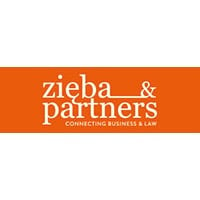

General counsel Poland | Siemens Poland




Wojciech Kowalewski
General counsel Poland | Siemens Poland
What are the most important transactions and litigations that you have been involved in during the last two years?
The legal team supported all major Siemens infrastructure projects in Poland both in acquisition and in execution phase, including execution of a 600MWe combined cycle power plant in Płock with a total value of PLN1.6bn. The team has also played key role in contractual negotiations for numerous projects, including the PLN152m long term service agreement for gas compressors signed with EuRoPolGAZ. Recently, public procurement expertise helped to secure an order for intelligent transport system in Tychy worth PLN118m, after a prolonged legal battle involving public procurement (KIO) and in the second instance, court. Over the last two years we have amicably settled outstanding projects’ disputes, including a dispute with Warsaw Metro, bridging seemingly irreconcilable positions.
What changes have you made to the workings of the legal department during your time in your current role? How has that affected the wider company?
Establishing and positioning the legal department as a strong partner for sales, execution and functional departments has been the key priority. Lawyers are closely integrated in project teams. This approach is highly appreciated within the company. The biggest challenge is how to combine close partnership with limited resources. Focus on the core legal work, the activities in which legal adds most value in risk management and seizure of opportunities, is the way how Siemens legal team responds to this challenge.
How important have “soft skills” or personal attributes outside of technical legal skill been to the team’s success, and which “soft skills” do you feel are most important for an in-house lawyer to possess?
Soft skills have become an indispensable part of in-house team’s toolkit. The ambition and goal of the team is to have real, visible impact on what’s happening at the company, on the course the company takes. Expertise is a must, however reliance on legal knowledge only is not sufficient to be there, where the effective legal team needs to be. In order to have an impact a lawyer needs business understanding and readiness to listen to what is the business concern, to merge it with the legal expertise and to work out a solution. The ability to put yourself in the shoes of your business partner is key here.
What are the most important considerations you have when recruiting new team members?
While recruiting I look for a good match to the team. What the good match means will differ depending on the stage at which the team is. For a mature, established team having a bit of creative disruption can spur new initiatives. For a more youthful one adding proven experience could make a real difference. In each case critical-thinking, readiness to share your knowledge and support your colleagues, independence, ability to analyse and quickly grasp complex problems, transform the analysis into solutions and win over stakeholders – that’s a profile of an ideal candidate.
What do you feel are the pros and cons of an in-house legal role compared to a private practice one?
As an in-house lawyer you are always in the middle of your company’s business activity. You get to experience and are affected by the every-day pulse of the firm’s life. It allows to forge bonds which are much closer than ones of a private practitioner. When you are passionate about your company’s success people see it and appreciate it. It’s easier to convey some difficult messages and say – that’s what we cannot do. As a lawyer you will be in such situations. When you are part of the team and you are seen as having the same ultimate goal – the success of your business, your colleagues will, sometimes grudgingly, accept it. And you have a chance to live with a project through its whole lifetime – see the start, ups and downs, difficulties, frustrations, moments of satisfaction, and finally project completion.
FOCUS ON… Industry 4.0
In May 2017 The Economist named on its cover page data as the world’s most valuable resource. Definitely, data has become the lifeblood of the fourth industrial revolution and transformation to Industry 4.0. Vast amounts of data are already available for advanced analytics and development of new services. Yet still it’s estimated that approximately 85% of world resources remain unconnected. We will definitely see more and more of them getting connectivity and becoming available for further processing. It holds true both for consumer products as well as for industrial equipment. For all business fields from transport to energy to factory automation to healthcare new devices are generating enormous amounts of data. Analysis of repetitive patterns transforms over time to creation of digital twins – virtual representation of real-life complex industrial machines and whole production lines. Feeding performance data from production environment into digital twin and combining it with industrial knowledge of highly-skilled engineers brings optimisation efforts to the next level. Application of artificial intelligence adds yet another transformative layer. Risk of developing new products gets minimised, product development times get shortened, product reliability increases.
These developments generate both new business models and new questions for the legal professionals supporting their implementation. To start with a simple question – who “owns” the data? Let’s leave aside the personal data and focus on the non-personal part. Will it be the device manufacturer, device owner, or its operator? And what does “ownership” of data mean? What sort of monopoly, if any, over such generated industrial data is created? All sorts of questions will occupy legal teams for years to come. In some cases legislators will give guidance. In others contracts will define the rules between the parties. In-house legal teams have unique opportunity to shape discussions on these topics. Being closely integrated in development of business processes and solutions gives in-house lawyers magnificent opportunity to get to the
core of such issues. To assess the impact of specific legal solutions for their companies and sectors
they are active in. It creates both new challenges for and responsibilities of the companies and their counsels. To live up to the expectations the in-house teams need to embrace new areas of legal expertise and at the same time capitalise on their business proximity.